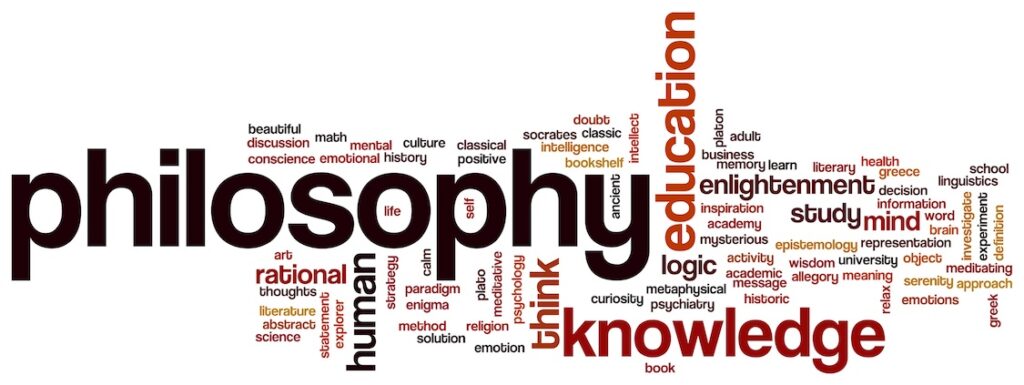The Healthcare Management Humanities Institute (HMHI) encourages interdisciplinary education and cross-sector learning and research. Dedicated to understanding the lived experience of managers delivering healthcare services, HMHI investigates the impact of studying and embedding the humanities in the development of future healthcare leaders.
Building on long-established medical humanities and bioethics programs offered to physicians and nursing staff, HMHI aims to offer a similar program for non-clinical healthcare leaders. The humanities develops critical thinking skills, expands cultural awareness and sharpens understanding of the lived experience. Through the study of disciplines, ethics, philosophy, history, language, and culture students learn about themselves and others and the larger world. In and through the humanities, they become better workers, local and global citizens. The outcomes of embedding humanities into the healthcare leader curriculum affords skills for both today and tomorrow.
The twenty-first healthcare leader must possess more than the known discrete skills needed for success today, they must be skilled and compassionate leaders able to across cultures, disciplines and hierarchies.The new curriculum for healthcare leadership, supported by the humanities, will reduce burnout, instilling a sense of purpose beyond the current moment. It will motivate staff to gain mastery in needed skills but also to explore new approaches in working. Studying the humanities will create more compassionate, kind leaders to support the development of staff and the creation of the new healthcare workplace.


HMHI Strives To:
- Raise Awareness about the importance of Healthcare Management Humanities in developing resilient, flexible, and successful healthcare leaders
- Broaden and open dialogues about the role and impact of studying the humanities in healthcare management education
- Close the gap between clinicians trained in the humanities and non-clinical managers who do not share similar training
- Create learning environments that challenge accepted work practices and encourage thinking and experimentation.
- Activate interest in research about the role and function of Healthcare Management Humanities in developing future leaders
- Explore the intersection of healthcare management and other sectors such as business, hospitality, education
HMHI plays an active role in the healthcare community. Through research and collaboration, team members participate in briefings, panels and conferences.

A New Paradigm for Healthcare Leader Education
Over the past twenty-five years, healthcare leadership education has focused on using the practices and approaches, from the business sector to develop strategies and manage operations. The results of applying the language, philosophy, and techniques of the business sector in healthcare have achieved some, many would argue, success. But there have been costs as well. Staff burnout continues to plague the industry as workplaces; staff burnout levels are at an all-time high. Patient satisfaction scores are below expectations and financial problems continue to threaten healthcare institutions.
We acknowledge the need for and importance of learning from the business sector and believe that lessons learned from the sector, and other sectors too, will help to form a new work environment. Armed with AI/technology, our aim is to embrace lessons learned, and partner with those inside and outside of healthcare as we integrate the humanities into the healthcare leaders’ work and education. By doing this, we envision a reconnection to purpose, improved work performance, reduced burnout, and a new type of leader who is skilled and able to realize the organization’s goals while, at the same time, realizing their own personal goals.
Healthcare managers face unique and different situations and challenges in the workplace, circumstances unlike those encountered in business, law, or other sectors. These differences require a different approach, a new paradigm, for developing healthcare leaders. We aspire to build a new paradigm for healthcare management education and add to the current body of knowledge.
Our Approach
HMHI works to frame and explore issues affecting the management of healthcare services. By design, our projects are interdisciplinary and cross-sector. Our work aims to discover new ways of working in the future, in the healthcare sector and beyond it. Through dialogue and rigorous investigation, we hope to make major contributions in the field of healthcare management education that will fuel and develop a more responsive and kind healthcare delivery system. Our focus is on four broad areas: The Lived Experience of Frontline Healthcare Leaders, Humanities and Healthcare Management, Cross-Sector Competency Building, and Motivation.

Questions We Hope to Answer
Aligned with the mission of Leslin, Healthcare Management Humanities Institute (HMHI), supports the mission, vision, and values of the organization by advancing scholarship, developing curricula, and creating spaces, like webinars, panel discussions, publications, and conferences, for dialogue and debate.
Four questions fuel our inquiry: What drives people to work in healthcare management? What is the relationship of healthcare leaders’ history and culture to their work life? How does the daily experience of working in the frontlines of healthcare transform the work experience? What skills and competencies are needed in twenty-first-century healthcare management?
Current and Upcoming Projects:
- Improving the Experience of Healthcare Management through the Arts
- Healthy Workplaces: Humanities and Psychological Safety in the Workplace
- Voices from Within: Healthcare Storytelling to Restore Purpose and Meaning
- Competency Unbounded: Toward New Models of Skill Development in Healthcare and Beyond
- Impact of Insurance and Access, on Health Outcomes: A Longitudinal Study of Co-Design with a Vulnerable and Underserved Community in New York City
Selected Past Projects/Programs:
- Resilience in Times of Change: COVID-19 and Beyond
- The Innovative Self: Shared Purpose as a Springboard for Change
- Careers in the Next 10 Years: Do Today’s Competencies Matter?
- Health Care Careers: Journey to Personal and Organizational Success
- Maslow for a New Century: Impact of Motivation Theory on Reducing Staff Burnout
